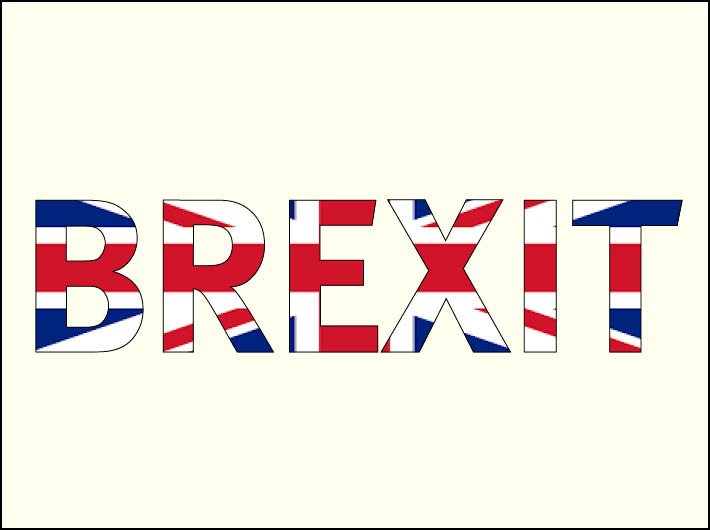British referendum on its membership of EU is a momentous affair, with far-reaching repercussions
On June 23, Thursday, Britain will decide, through a countrywide referendum, whether it wants to stay with the European Union (EU) or not. Popularly known as ‘Brexit’ (from ‘Britain Exit’), the referendum vote will be a first for any EU member. The debate and campaigns in the run-up to the vote have been passionate on both sides – an MP, Jo Cox, was killed for canvassing the stay option – because the very idea of Britain (and by extension Europe) could be at stake.
READ: As Britain votes to Brexit or not, here's how it could affect India
Here is a brief primer for those who still find the matter befuddling.
Why is it happening at all?
As part of his 2015 re-election campaign, British PM David Cameron had promised to hold a referendum on this vexed issue. Curiously, many members of the ruling Conservative Party are against Cameron’s stand and want Britain to exit from the EU.
Argument for Britain to leave the EU
Those in favour of the Brexit argue that by disassociating with the EU, Britain can protect its identity and reduce the EU’s excessive control on it. The EU binds Britain with many of its rules and regulations on business and trade. That can be done away with Brexit. As per
The Economist, “Those in favour of leaving argue passionately that it would liberate Britain from the suffocating hold of EU red tape and political interference, and free up the country’s businesses to trade more successfully with the rest of the world.”
The EU also charges a hefty membership fee, around £350 million per week, from the UK, as per a
vote for leave campaign. The money can be utilised on the National Health Service (NHS) and schools. However, this figure leaves out the rebates and EU funding that British receives.
There is also the argument of immigration, which is gaining momentum. Europe is already reeling under the refugee crisis with mass exodus from Syria and other warzones. An influx of people who are willing to work at low wages can hit the economy of Britain hard and put a stress on its public services.
Obviously, some of the arguments in favour of quitting the EU have a xenophobic, right-wing flavour.
Who wants to leave?
PM Cameron’s six senior cabinet colleagues broke ranks with him and want a Brexit. They include Michael Gove, Iain Duncan Smith, Chris Grayling, Theresa Villiers, John Whittingdale, and Priti Patel. London’s former mayor Boris Johnson and UK Independent Party’s (UKIP) leader Nigel Farage also want an exit. US presidential nominee Donald Trump favours Brexit.
The UK’s second largest newspaper, The Sun, has urged its readers to vote “yes” to “escape a relentlessly expanding German dominated federal state”.
Arguments in favour of Britain remaining in the EU
London is a global financial centre and an exit from EU could be a fatal blow. If Britain remains part of the 28-nation EU then buying and selling of goods and services in other EU countries remains easier. The country would lose trade and investment without access to EU’s open markets.
The Economist explains, “A Brexit would also make the country a much less attractive destination for foreign investment in Britain, as many companies come to the country in part because of its access to EU markets.”
As per
Britain Stronger in Europe Campaign, “Almost half of everything we sell to the rest of the world we sell to Europe - and we get an average of £24 billion of investment into Britain per year from Europe.”
The immigration argument is countered by a belief that an influx of migrant people from other EU countries would in fact help Britain in its economic growth. No immigrants would mean loss of labour force which would lead to lower productivity.
Also, Scotland threatened to hold a snap referendum which will enable it to break away from the UK if there is a Brexit. Scotland sends half of its international exports to the EU.
Who wants to stay?
PM Cameron is in the ‘remain’ camp. US president Barack Obama and his Chinese counterpart Xi Jinping do not want a Brexit. Britain’s former PMs Gordon Brown, Tony Blair and John Major do not want an exit.
Liberal media outlets including The Guardian have been campaigning for the remain option.
How will the voting take place?
Polling stations will open in the morning of June 23 at 382 centres across Britain. British, Irish and Commonwealth citizens who live in the UK, along with Britons who have lived abroad for less than 15 years, are eligible to vote. Only people aged 18 and over will be allowed to cast their vote.
Commonwealth migrants from 54 states including Australia, Canada, India, Pakistan and Nigeria can join the electoral roll as long are they are residents in the UK. Citizens from other European countries – apart from Ireland, Malta and Cyprus – will not get to vote on whether the UK remains part of the EU.
Britain’s relationship with the EU
The European Union came into existence with six nations in 1957. The UK joined it in 1973. But it never fully accepted the legitimacy of European control over British institutions. Britain continues to use pound as its currency and has not joined the Schengen zone, which allows passport-free travel in EU.
A referendum was also held in 1975 in which Britons endorsed staying on in the EU.
Forecasts
As per the Ipsos MORI poll, 53 percent of the population are for the Brexit and 47 percent want to remain in the EU. However, there have been several polls with different forecasts – none giving a clear majority to either option.
